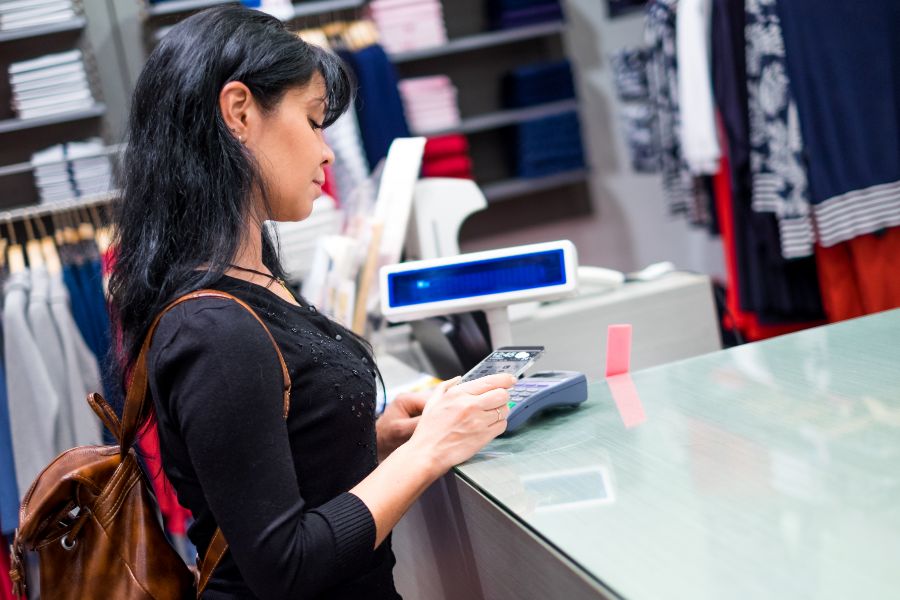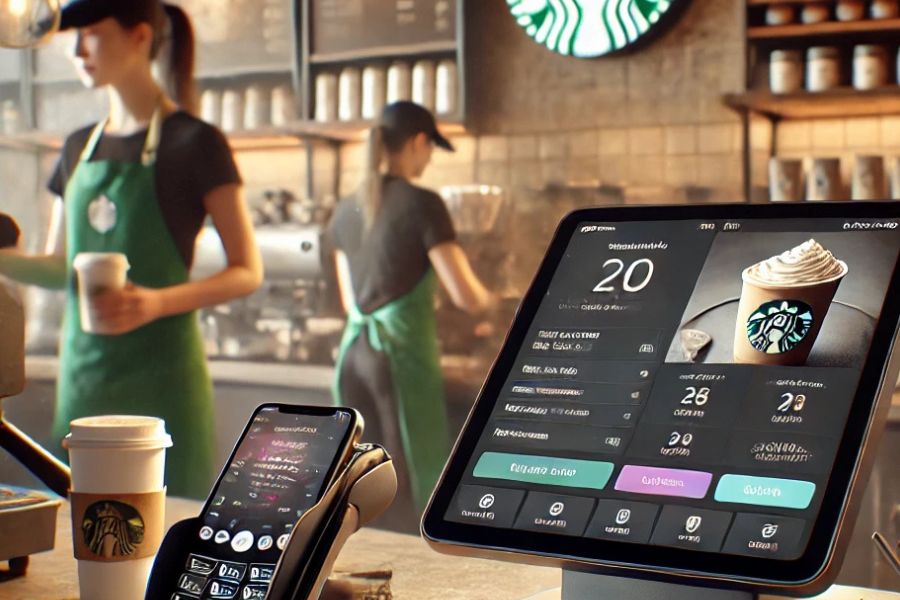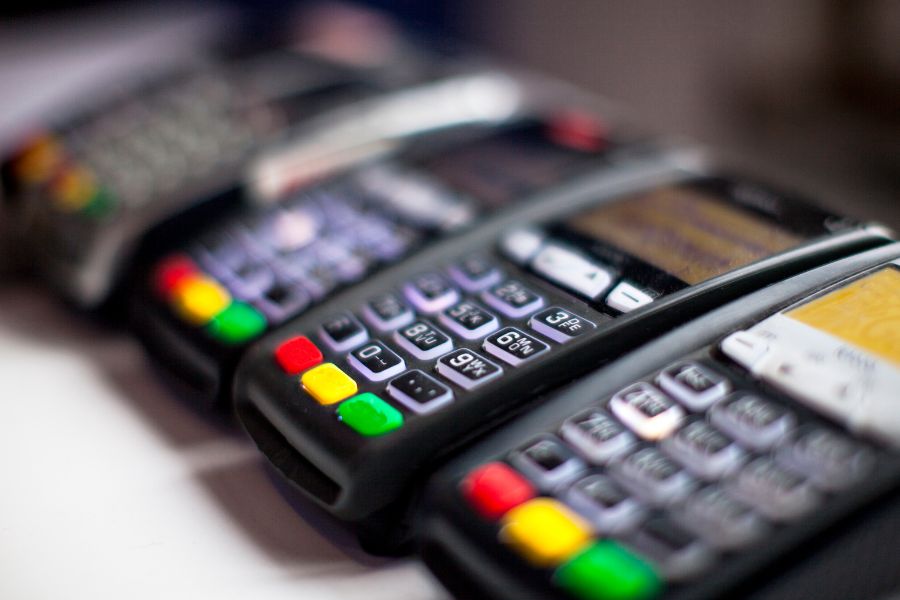For footwear businesses to succeed in today’s retail market, they must carefully select a POS system that can optimize operations, improve customer satisfaction, and boost revenue. This article delves into the key aspects that businesses should consider when selecting a footwear POS system, including inventory management, e-commerce integration, pricing, and security.
Common Features of A Powerful Footwear POS System
A powerful footwear point of sale (POS) system can greatly enhance the efficiency and effectiveness of managing a footwear retail business. Below are some common features that contribute to the strength of such a system:
- Inventory management: Tracking inventory levels accurately in real-time is crucial for footwear retailers. A powerful POS system should allow for easy management of stock levels, automated reordering when inventory falls below certain thresholds, and the ability to transfer stock between stores if necessary.
- Product variants handling: Footwear comes in various sizes, colors, and styles. A robust POS system should support handling product variants effectively, enabling retailers to manage different options within the same product line easily.
- Barcode scanning: Streamlining checkout processes is essential for providing a positive customer experience. Barcode scanning capabilities help cashiers quickly and accurately ring up sales, reducing errors and speeding up transactions.
- Customer Relationship Management (CRM): A powerful POS system should include CRM features to help retailers build and maintain relationships with their customers. This might include capturing customer data, tracking purchase histories, and implementing loyalty programs to encourage repeat business.
- Sales reporting and analytics: Comprehensive reporting and analytics functionalities allow retailers to gain insights into their sales performance, inventory turnover, and customer behavior. This data can inform business decisions and strategies to optimize profitability.
- Integrated e-commerce platform: With the growing importance of online sales, a powerful footwear POS system should seamlessly integrate with e-commerce platforms. This integration ensures that inventory levels are synchronized across all sales channels and allows for centralized management of online and offline sales.
- Customization and scalability: Every footwear retailer has unique needs and workflows. A powerful POS system should offer customization options to adapt to specific business requirements and be scalable to accommodate growth and expansion.
- Security and compliance: Protecting sensitive customer data and ensuring compliance with regulations such as the Payment Card Industry Data Security Standard (PCI DSS) is paramount. A powerful POS system should include robust security features to safeguard transactions and customer information.
By incorporating these features, a powerful footwear POS system can empower retailers to streamline operations, enhance customer satisfaction, and drive business growth.
Market Trends in the Footwear Industry
E-commerce Integration
With a projected 2 billion users purchasing footwear online by 2023, it’s unsurprising that total revenue for footwear e-commerce in that year is anticipated to reach $135 billion across all segments. This shift underscores a growing opportunity for footwear retailers to expand their reach and tap into digital marketplaces.
Consequently, many software vendors now offer seamless integration with e-commerce platforms, enabling retailers to manage their online presence efficiently. Additionally, some solutions even facilitate the creation and management of bespoke e-commerce websites.
Gift Cards and Loyalty Programs
Gift cards have emerged as a favored choice for shoppers, driving a notable trend within the retail landscape. As a response, POS software providers are increasingly integrating features for gift card management and loyalty programs.
This strategic move not only caters to evolving consumer preferences but also aligns with the industry’s transition towards digitized gift card formats. Anticipated to gain further momentum, this trend signifies a heightened focus on enhancing customer engagement and retention strategies.
Tablet POS
Tablet-based POS solutions are gaining traction as a viable alternative to traditional hardware-based systems. Offering lower costs and enhanced user convenience, tablet POS applications are becoming increasingly popular among retailers.
The larger screen size compared to mobile POS software further contributes to their appeal, facilitating smoother transactions and improved usability. With more stores adopting this technology, tablet POS is poised to become a mainstream feature in the footwear retail landscape.
Top 10 Best Footwear POS Systems In The US (Updated 2024)
ConnectPOS
ConnectPOS is a next-gen POS solution trusted by over 12,000 businesses all over the world, including leading enterprises.
ConnectPOS offers a tailored solution for complete shoe store operations, featuring seamless omnichannel capabilities, advanced inventory management, and precise employee oversight.
With bespoke POS features designed for footwear sales, including an endless aisle of products and intuitive exchange/return functions, customers enjoy a comfortable shopping experience.
The platform ensures seamless integration with e-commerce platforms, payment gateways, and CRM solutions, enabling retailers to scale efficiently. ConnectPOS also offers customization options to personalize the system according to individual business needs, empowering retailers to expand and adapt effortlessly in the retail footwear industry.
Clover
Praised for its user-friendly interface and versatile app marketplace, Clover is highly regarded by small businesses for its ease of use and adaptability. Users appreciate its quick learning curve, with new employees often becoming comfortable with the system within a day. Customization with industry-specific apps, such as online booking for salons, enhances operational efficiency and customer satisfaction.
However, as businesses scale, limitations in reporting and transaction fees for high-volume transactions may become apparent. Moreover, concerns about potential hardware lock-in caution businesses about long-term flexibility. Overall, Clover excels for smaller businesses prioritizing ease of use and app integration but may pose challenges as businesses grow.
Toast
Toast stands out for its user-friendly interface, robust reporting, and mobile capabilities, making it a popular choice for restaurants. Its intuitive design simplifies training and daily operations, while extensive reporting provides detailed insights for data-driven decision-making. Mobile order and payment management enhance staff flexibility and customer service.
However, concerns about pricing complexity, limited customization, and occasional technical issues warrant careful consideration. Ultimately, Toast’s strengths in user-friendliness and reporting must be weighed against potential drawbacks for informed decision-making.
Mindbody
Designed for wellness businesses, Mindbody offers innovative features like calendar syncing, marketing integrations, and insightful reporting. While praised for its dynamic booking system, frequent crashes and undertrained customer service raise concerns. Despite drawbacks, Mindbody remains an ideal solution for businesses in the yoga and fitness industry.
Lightspeed POS
With a user-friendly interface and comprehensive feature set, Lightspeed caters to retail, hospitality, and service industries. Its omnichannel capabilities and seamless integrations with popular software streamline operations. However, the pricing structure, limited offline functionality, and specific feature limitations may deter some users.
Despite drawbacks, Lightspeed’s extensive features make it a competitive option for businesses with complex needs, albeit at a higher price point. Ultimately, the choice between Lightspeed and its competitors hinges on individual business requirements and budget considerations.
Square POS
Renowned for its simplicity and affordability, Square POS is favored by small businesses, particularly startups. Its intuitive interface and seamless setup facilitate quick transactions and basic sales management, while integration with popular tools like email marketing enhances operational efficiency.
However, as businesses expand, reporting and inventory management limitations may become apparent. Moreover, higher transaction fees for larger volumes and mixed reviews regarding customer support raise concerns. Square POS remains a strong choice for solopreneurs and micro-businesses seeking an accessible and cost-effective solution, but scalability issues may prompt the exploration of more robust platforms as businesses grow.
SpotOn
SpotOn stands out for its user-friendly interface and customizable features, offering strong competition to larger counterparts like Clover. Its table management for restaurants and inventory control tools for retailers are noteworthy. However, a confusing pricing structure with hidden fees and occasional glitches in offline functionality poses challenges.
Despite extensive integrations, some users encounter connectivity issues. While SpotOn offers more features than Square, it may lack the same simplicity and ease of use, especially for smaller businesses. Overall, SpotOn excels in adaptability and industry-specific strengths, but potential users should be prepared for pricing complexities and occasional integration troubles.
NCR Silver
NCR Silver receives mixed reviews, praised for its intuitive interface and robust reporting features but criticized for its pricing structure and occasional glitches. The software’s user-friendly design aids quick staff training, and its reporting capabilities offer valuable insights for informed decision-making.
However, higher pricing and limited customization options may deter some users. Despite occasional technical issues, NCR Silver presents a solid option for businesses seeking a data-rich solution, although careful consideration of pricing and customization is advised.
Shopify POS
Known for its user-friendly interface and seamless integration with the Shopify e-commerce platform, Shopify POS is favored for basic POS needs. Its mobile app flexibility and inventory synchronization streamline operations. However, limitations in the free tier and transaction fees for non-Shopify payments may deter smaller businesses.
While offering ease of use, Shopify POS may feel restrictive for advanced features, requiring technical proficiency for customization. Despite its strengths in ecommerce integration, businesses seeking more extensive customization options may explore alternatives like Wix. Ultimately, Shopify POS excels in user-friendliness and ecommerce integration but may not suit all business needs.
Shop Keep
ShopKeep is a cloud-based point-of-sale (POS) system designed specifically for small and medium-sized businesses, particularly those in the retail and food service industries. It offers a range of features to help businesses manage sales, inventory, and customer relationships effectively.
One of ShopKeep’s key strengths is its user-friendly interface, which makes it easy for business owners and staff to navigate the system with minimal training. This simplicity extends to the setup process, allowing businesses to get up and running quickly.
ShopKeep provides robust inventory management tools, enabling businesses to track stock levels, set up low-stock alerts, and manage purchase orders efficiently. This helps businesses avoid stockouts and overstocking, leading to better inventory control and cost management.
FAQs About Footwear POS Systems In The US
- How do footwear POS systems handle size and style variations?
POS systems for footwear stores typically have features for managing size and style variations effectively. They often include options for inputting different sizes and styles of shoes into the system, allowing retailers to track inventory accurately. Additionally, these systems may offer features for easily selecting and selling specific sizes and styles during the checkout process.
- Can footwear POS systems integrate with e-commerce platforms?
Yes, many POS systems offer integration with e-commerce platforms. This integration allows retailers to synchronize inventory levels between their physical stores and online stores, ensuring accurate stock availability for customers. It also enables retailers to manage online orders and process payments seamlessly through their POS system.
- How secure are footwear POS systems?
POS systems prioritize security to protect sensitive customer data and ensure safe transactions. They typically employ encryption techniques to secure payment information, adhere to PCI DSS compliance standards, and implement security measures such as user authentication and access controls. Additionally, reputable POS providers regularly update their systems to patch vulnerabilities and protect against emerging threats.
- What is the pricing structure for footwear POS systems?
The pricing structure for footwear POS systems can vary depending on factors such as the provider, features included, and business size. Some POS systems may charge a monthly subscription fee, while others may offer pricing based on transaction volume or hardware requirements.
Additionally, add-on features, integrations, or support services may incur additional costs. Therefore, businesses must evaluate their needs and budgets carefully when selecting a footwear POS system.
Conclusion
Selecting the right POS system can significantly impact the success of footwear businesses in the US market. Whether it’s managing size and style variations, integrating with e-commerce platforms, ensuring security, or understanding pricing structures, the top 10 footwear POS systems highlighted in this article offer a range of features and capabilities to meet diverse business needs.
Don’t hesitate to contact our team if you’d like to learn more about ConnectPOS or see our solution in action.
ConnectPOS is a all-in-one point of sale solution tailored to meet your eCommerce POS needs, streamline business operations, boost sales, and enhance customer experience in diverse industries. We offer custom POS with features, pricing, and plans to suit your unique business requirements.




